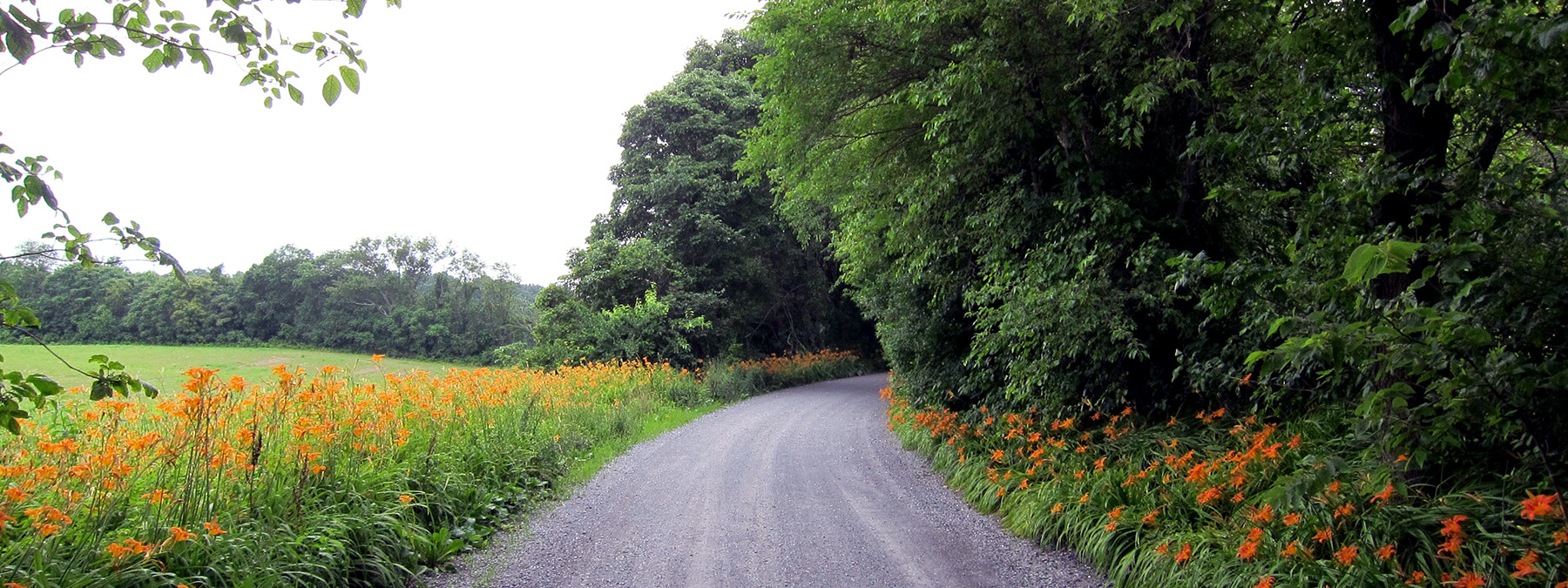
Planning team will brief the Planning Board on the progress of the technical update to the plan
WHEATON, MD – The Montgomery County Planning Department, part of The Maryland-National Capital Park and Planning Commission, will provide an update on the Rustic Roads Functional Master Plan to the Planning Board at its April 21, 2022 meeting. This work is an update to the Rustic Roads Functional Master Plan, which was approved in 1996. View the staff report for the Rustic Roads Functional Master Plan briefing.
Roads in the Rustic Roads Program are narrow, low volume roads used by drivers, farmers, equestrians, bicyclists, and hikers and reflect the agricultural character and rural origins of Montgomery County. Each road is unique, and some have special surfaces such as gravel or concrete that have become rare. They are public roads that receive routine maintenance by Montgomery County Department of Transportation or the Maryland State Highway Administration, but because of their inclusion in the program, significant features of these roads are conserved. The program is supported by the Rustic Roads Advisory Committee which consists of residents, farmers, and advocates.
To be classified as a rustic road or as an exceptional rustic road, the Montgomery County Council must find that an existing public road or road segment meet several criteria. The analysis includes identifying significant features along the roads, writing or verifying historical narratives, describing important environmental features, and creating new maps for each road. The update to the Rustic Roads Functional Master Plan serves two main purposes:
- To consider roads that have been nominated for inclusion in the rustic roads program.
- To provide the necessary details for several roads that are currently in the program but have incomplete descriptions.
Since the scope of work for the plan was approved by the Planning Board in February 2020, the master planning team has been reviewing each of the 99 roads currently classified as rustic or exceptional rustic roads as well as an additional 25 roads that have been nominated for inclusion in the program.
Planning staff are also considering reclassifying some current rustic roads as exceptional rustic, are recommending updated significant features for some roads, and are even contemplating removing a few roads from the program.
About the Rustic Roads Program
The roads in the program reflect the history of Montgomery County – from native American hunting trails and mill roads to westward expansion routes, canal and lock roads, and railroad connection roads. Local roads connected our farms to mills and markets for lumber, food, and cash crops, and connected communities to one another for education, worship, and governance.
Today, the Rustic Roads Program continues to support local farming and the Agricultural Reserve. These narrow, historic roads allow residents to safely share the lanes with a broad variety of users including slow-moving farm equipment and horses. For visitors to pick-your-own farms, wineries, and on-farm breweries, the roads underscore the nature of the working landscape and enhance the experience of hiking, driving, or riding a bike through the Reserve. Montgomery County was early in recognizing the value of our small, historic farm roads, with the County Council appointing a task force to study the issue in 1989 and establishing the Rustic Roads Program through county law in 1993 (Chapter 49, Streets and Roads, Article 8, Rustic Roads Program). Through the Council’s approval of two functional master plans and 11 area master plans, 99 roads have been placed in the program. Residents have nominated two dozen more roads for addition to the program, so the number of designated rustic roads and community support for them continue to grow.
For more information about the Rustic Roads Functional Master Plan, contact Jamey Pratt at 301-495-4588 or Jamey.Pratt@montgomeryplanning.org.